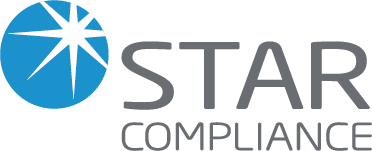This blog is adapted from the Star US Conference panel discussion "Change, Challenges, Solutions & Scale," which offered a look at the challenges three compliance leaders have faced in the last year, how they were addressed, and what they see coming for 2020. The discussion was moderated by Star Director of Product Strategy and Marketing, Tim Ward.
Tim Ward: Jay, start us off, if you would. What's been your key focus over the last twelve months?
Jay Wayshak, Director of Investment Compliance at a large financial services firm: Signing our contract with Star. Becoming a client and implementing the STAR Platform. In all things, we're trying to make things simpler: not just for my team but also for the end user. Star has been a big part of that effort. At the same time, we're also consolidating our codes and policies.
Tim Ward: I suppose there are pros and cons of that approach—tackling two big tasks simultaneously. What is the juggling act like? And are you finding that you're changing your implementation approach as the policies change? Or are you tweaking the policies as you learn more about the solutions the STAR Platform offers?
Jay Wayshak: Good question. We did change a couple of things in our new code of ethics after we had a requirements gathering session for the STAR software. So we definitely ended up tweaking the code of ethics to better match up with the capabilities offered in STAR.
Tim Ward: Suzanne, what have you been focusing on over the last year or so?
Suzanne Barker,* CCO at a global investment bank: Also making things simple. We have a number of in-house systems built 10-15 years ago, before platforms like Star's were as advanced as they are now, and we're working to integrate everything into STAR. The next task will be getting our restricted lists operating out of STAR, so everyone will have just one place to go.
Tim Ward: You mentioned acquisitions, Suzanne, and the challenges of consolidating outside systems—as well as the cultures, codes, and policies—into your firms. Can you talk about that?
Suzanne Barker: You purchase a company and find out people are keeping their data files in emails, or on personal hard drives. You never know for sure what you're going to get until you actually get it. In the acquisition process, you think, it's the same type of business, the same type of personalities, so this should be a good fit. But when it comes down to implementing the integration, post purchase, and looking at the systems, you discover there's something they have to change, or maybe there's something you have to change, to address the business model.
Tim Ward: Do you typically find those firms you're acquiring and integrating with aren't as advanced as you are? That they're the ones who have to catch up to where you are?
Suzanne Barker: It can go both ways. We try and make it a meeting of the minds, to make it all as easy as possible. Not just for the employees, but for the business unit as a whole. Bringing two companies together is a lot about training. It's not just data and analytics. It's about getting people to understand what it is they need to do by the most simple and least-invasive methods.
Tim Ward: Melissa, at your firm you've been bringing more and more people onto the STAR system over the last few years. How is that progressing?
Melissa Oscar, Assistant VP, Ethics, Operations, and IT Support at a global financial services firm: Over the last two years, we've rolled out 40,000 people onto a personal investment policy, at various tiers. Some are required to pre-clear, some aren't. And this is globally: in at least 20 countries. It's been about making sure employees understand what's now required of them. And some don't understand it. Some have been there for twenty years, and have never had to do anything we're now asking them to do. Communication has been a big part of making it work, as well as training.
Tim Ward: Sure. Just because you're in the middle of a software rollout doesn't mean other things aren't also changing. That's something that drives us here at Star to shorten implementation times, because we know you're juggling a billion things at once. Jay, what's on your plate for the next year?
Jay Wayshak: Privacy concerns. We're dealing with those right now in Vietnam and Indonesia. The governments don't want data to leave. But there's always a workaround. One thing I'll say, it really makes a difference to physically get out to these countries, to get face-to-face. They respond very positively to that. Just being on the phone, and trying to work something out, it's easy for them to misinterpret what you're trying to say. Even having them read a document you sent to explain something that needs to happen is no substitute for actually being there. So as we roll out to these countries, either myself or someone else will be there on the ground.
Tim Ward: Suzanne, can you tell us what your year ahead looks like?
Suzanne Barker: We're going increasingly global, and building out our London office in particular. As Melissa mentioned, there can be a culture shock when you're expanding. People may be asked to do things they haven't had to do before. We'll also be moving to a control room functionality through Star, getting our deal-conflicts teams completely off of manual systems. And then after that, it’s moving our restricted lists onto STAR and integrating it with Salesforce.
Tim Ward: What about data privacy? What do you see coming down the pike in terms of that?
Suzanne Barker: As the states start to roll out their own privacy policies, which is happening, we have to start figuring out how to adapt our GDPR policy to accommodate those. As always, when you're talking regulations, you have to take something quite complex and legalistic and turn it into something that people can understand. That they can take action on. Not necessarily dumbing it down, but making it as easy to understand as possible.
Tim Ward: And then it's about making sure people know what action to take when it's time to take it, so that they're compliant when they need to be compliant: rather then them having to search through a manual trying to figure out what to do when a situation suddenly arises.
Suzanne Barker: Right. You can't expect an employee to read through a three-ring binder full of directions every time a potential situation pops up. We think about the busiest person. What are they going to spend the time on? If we can roll something out and our CEO doesn't ask one question, then we're golden. That's our running joke. And it's worked.
Tim Ward: That's a good idea. The bar is really what the busiest, most-senior person will tolerate. Then if it works for them, it will work for everybody. Melissa, what do you see coming down the pike in the next twelve months at you firm?
Melissa Oscar: Now that we have everyone on STAR, it's about solidifying everyone on the system: stabilizing everyone and everything involved with it. One big thing is, we're looking at dashboards, so that managers have more instant insight into what their employees are doing.
Tim Ward: There's been a big drive for efficiency at your firm, hasn't there? I know part of that drive has been distributing more work to the first line, and embedding that into the compliance process. How have you found that part of the project?
Melissa Oscar: It was quite noisy up front, with people asking lots of questions related to why they were suddenly doing this, why such and such was suddenly being asked of them, etc., even though we did a lot of training and notifying up front. But it's calmed down, thankfully.
Suzanne Barker: Training is key, and it's something else we're in the process of adjusting. We've returned to a very personal onboarding process. Putting a face to compliance right off the bat.
Tim Ward: Yes. Automation is great, but it can't do everything, can it? But maybe the automation is helping free up compliance officers just enough from avoidably manual tasks so that there's more time for face-to-face interaction when it's a real priority. We've also heard this idea of the 90-day induction, where you're not hitting everyone with everything in the first day or the first week.
Suzanne Barker: Yes, yes, and yes. Regardless of how you do it—training, that is—you need to do it, otherwise employees fall back on the policies they followed from their old firm. And it can be easier if you space things out and if you keep sessions short, to keep the training from becoming tedious. You didn't just hear me say that compliance can be tedious.
*Suzanne's real name has been withheld at her request. For more from Suzanne, check out part one and part two of our in-depth interview: "Confessions of a Lifelong Compliance Officer."



